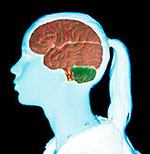By Liliana Segura | The Intercept | October 8, 2014
On a snowy evening in late March, just over a year after walking out of prison, where he had spent 23 years for a crime he didn’t commit, William Lopez entered a CVS in the Bronx and did something inexplicable. After paying for a prescription at the pharmacy counter, he paused to grab some other things—two sticks of Old Spice deodorant and some allergy medicine. Then, without paying, and in full view of a security guard, he walked out. Police were called and Lopez was arrested.
Lopez told his lawyer he had been preoccupied and took the items by accident. This actually made sense; navigating his new-found freedom posed a daily challenge for the 55-year-old Lopez, and he was often distracted. “His mind was not all there,” his lawyer recalls. “He was anxious about a lot of things.” But Jeff Deskovic, Lopez’s closest friend, heard a different explanation, one that disturbed him. To him, Lopez confessed, “he committed a petty theft to get reincarcerated.” Continue reading »




